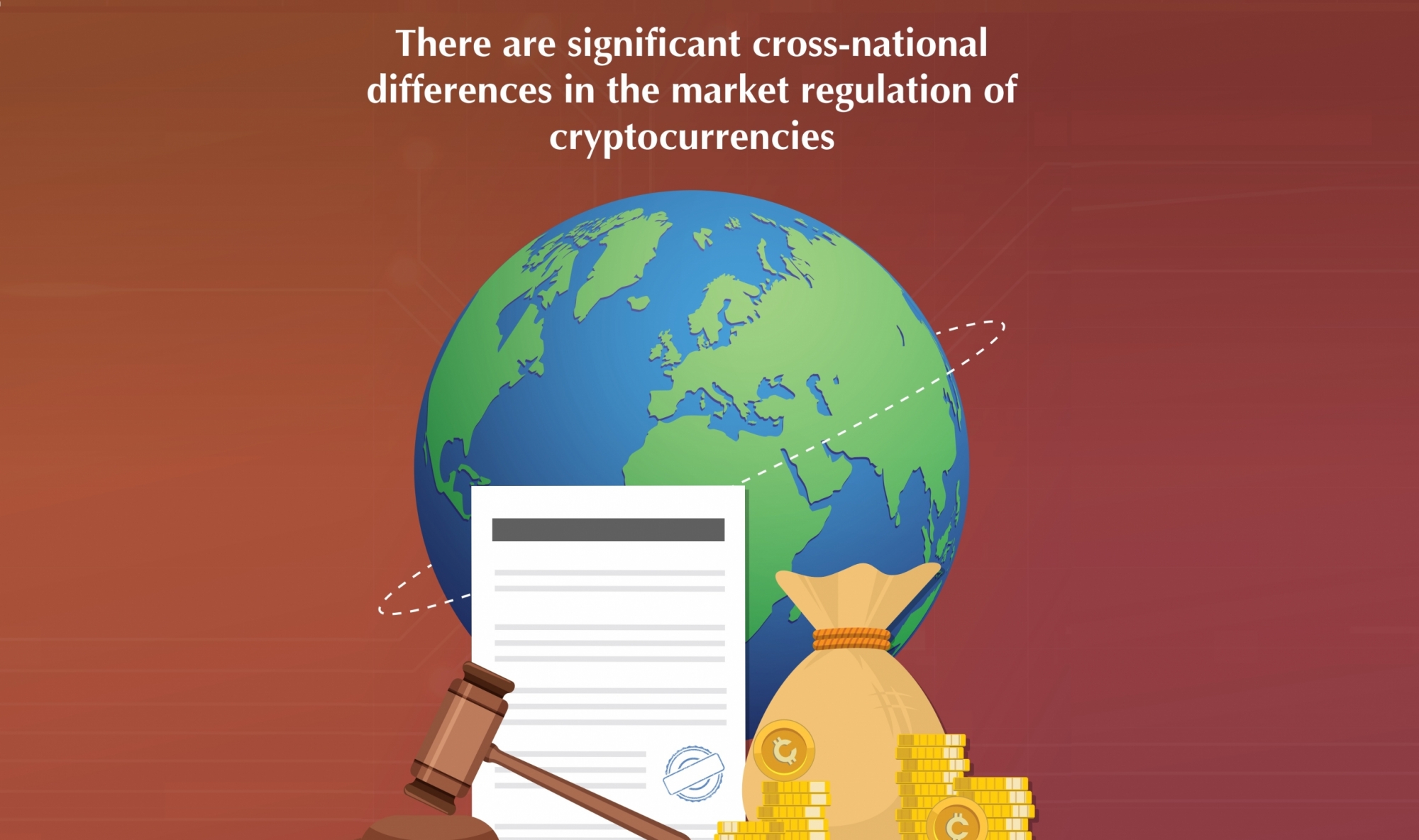Decoding Cryptocurrency Regulation in the Legibility Framework
Tue, Mar 5, 2024-
Tags
Decoding Cryptocurrency Regulation in the Legibility Framework
Researchers present a new framework to discuss the controversial regulation of cryptocurrency across different countries
Cryptocurrency regulation varies significantly between countries. However, the reason for this striking variation remains unknown. To explain these differences, a team of researchers have developed a novel theoretical framework, drawing on James C. Scott’s idea of ‘legibility’. Legibility refers to the extent to which markets are ‘seen’ (i.e. recognized and legitimated) by the state. This framework explains how market demand and state supply of legibility shape markets over time, providing a more complete picture of the cryptocurrency market and the broader political-economic dynamics of financial markets.

Legibility is a useful concept that can explain how market regulations evolve over time through the interplay of market demand for and state supply of regulation. It can explain the puzzling cross-national differences in cryptocurrency regulation.
Since its introduction, cryptocurrency governance has been one of the most controversial global financial topics. While some countries have established elaborate regulations for cryptocurrencies, many countries are still reluctant to oversee the markets, and some have outright banned them. Most studies suggest that public agencies naturally want to regulate markets and bring them into their purview. However, the significant differences in cryptocurrency regulation over the world call this view into question. Moreover, these differences cannot be explained by the development of the financial market and capacity of the state. This naturally leads to the question – what is the cause of these differences and what drives market regulation?
To answer these questions, Associate Professor Jack Seddon from the School of Political Science and Economics at Waseda University and Associate Professor Miles Kellerman from Leiden University’s Institute of Security and Global Affairs introduce the concept of ‘legibility’ to the analysis of financial markets. “The widespread debate over the extent to which cryptocurrencies should be regulated can be better understood as a political battle over whether to make private markets “legible” to the state. Our framework conceptualizes this dynamic as a balance of two variables: market demand for regulation and state supply,” explained Dr. Seddon. Their novel framework was presented in a study published in the journal Business and Politics on February 05, 2024. The study was funded by The Law, Politics and Economics of Financial Benchmarks: JSPS KAKENHI Grant Number 20K13438.
In this innovative framework, the supply and demand variables together determine the ideal-typical states of market legibility. The demand side represents the competing interests of the various market actors over seeking legibility and the supply side shows how likely the state is to regulate a specific market. When both demand and supply are low, the markets are in a state of pure illegibility with no regulation. In contrast, when both demand and supply are high, as is the case for most real markets, the markets are in a state of collaborative legibility.
Additionally, when the state supply is high and market demand is low, the markets enter contested legibility, where the state wants to bring the market into the legal purview, but market actors resist it. Alternatively, when the demand is high and the state supply is low, contested illegibility occurs. The researchers also presented an expected progression of markets through these legibility states, over time. According to this framework, most markets start in the state of pure illegibility and over time go through either contested legibility or illegibility to finally attain collaborative legibility.
They utilized this framework to study the evolution of the cryptocurrency market in the United States, European Union, and Japan. Their analysis revealed that all three went through the expected stages of legibility, albeit at different rates. The United States, for example, is currently in the stage of contested legibility, while the EU progressed from contested legibility to collaborative legibility. Japan, unlike the other two, quickly transitioned from pure illegibility to collaborative legibility. Furthermore, the findings also showed that once the final state is achieved, markets do not tend to regress.
These results suggest that legibility is a powerful concept that can also be applied to understand other markets. In the future, the researchers aim to study other markets and countries to realize their full generalizability. Emphasizing the significance of this study, Dr. Kellerman said, “This study is highly relevant to pressing regulatory concerns. For example, a prolonged state of contested legibility in the crypto market can delay the introduction of regulations that protect consumers. By mapping patterns of contestation over legibility, our framework takes a first step towards better understanding the political economy of financial regulation.”
Reference
Title of original paper: Into the ether or the state? Legibility theory and the cryptocurrency markets
DOI: 10.1017/bap.2023.38
Journal: Business and Politics
Article Publication Date: February 05, 2024
Authors: Miles Kellerman1 and Jack Seddon2
Affiliations:
1. Institute of Security and Global Affairs, Leiden University, Netherlands
2. School of Political Science and Economics, Waseda University, Japan
- Links














